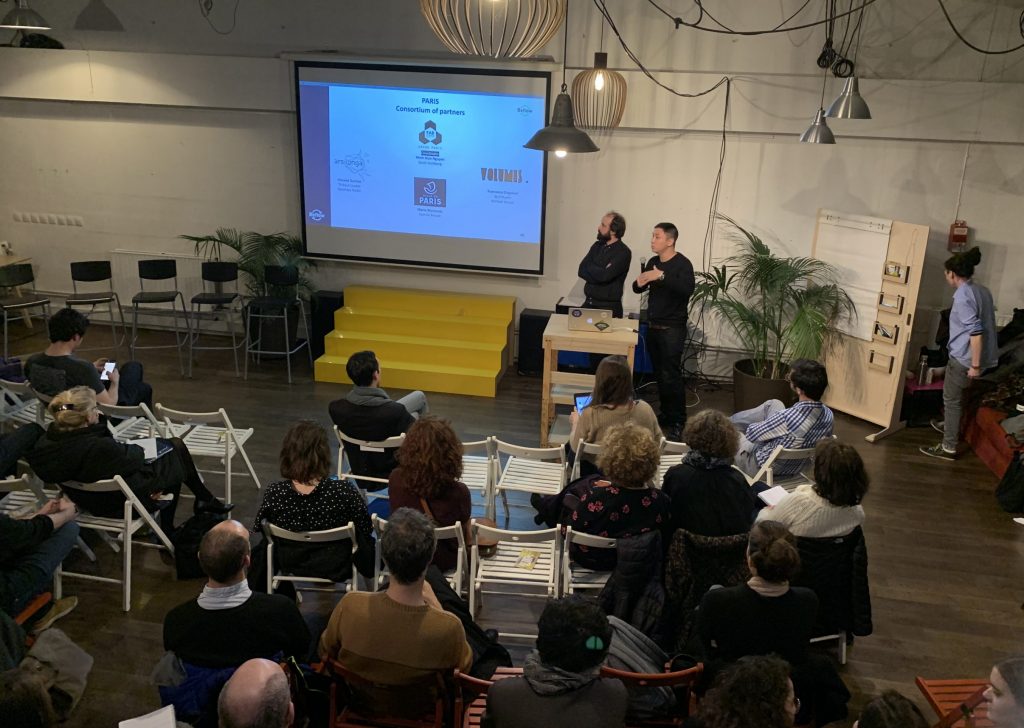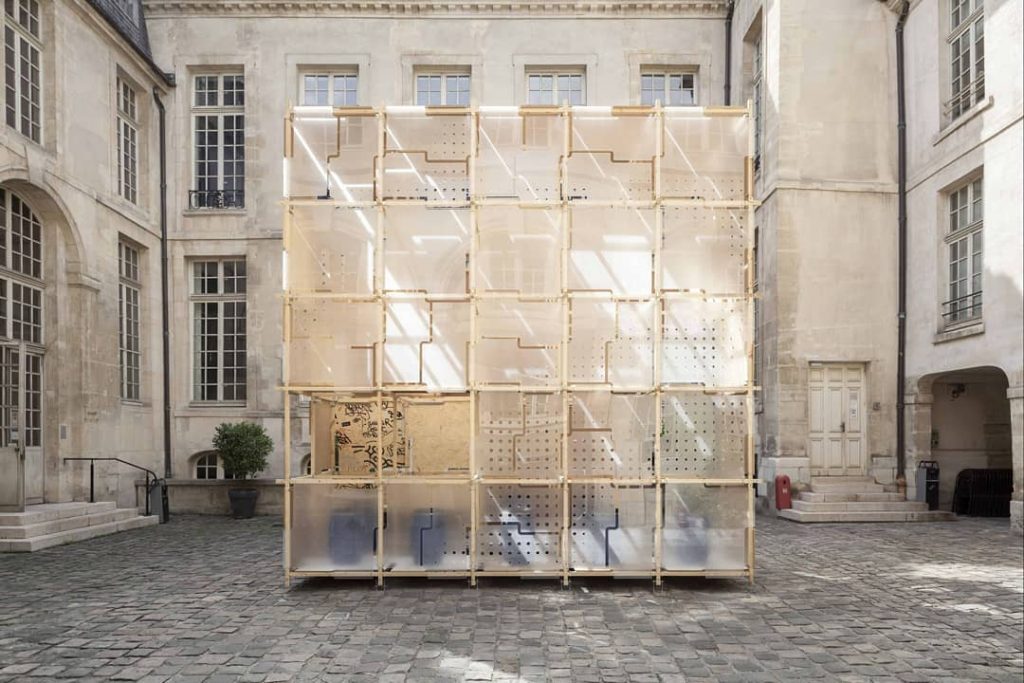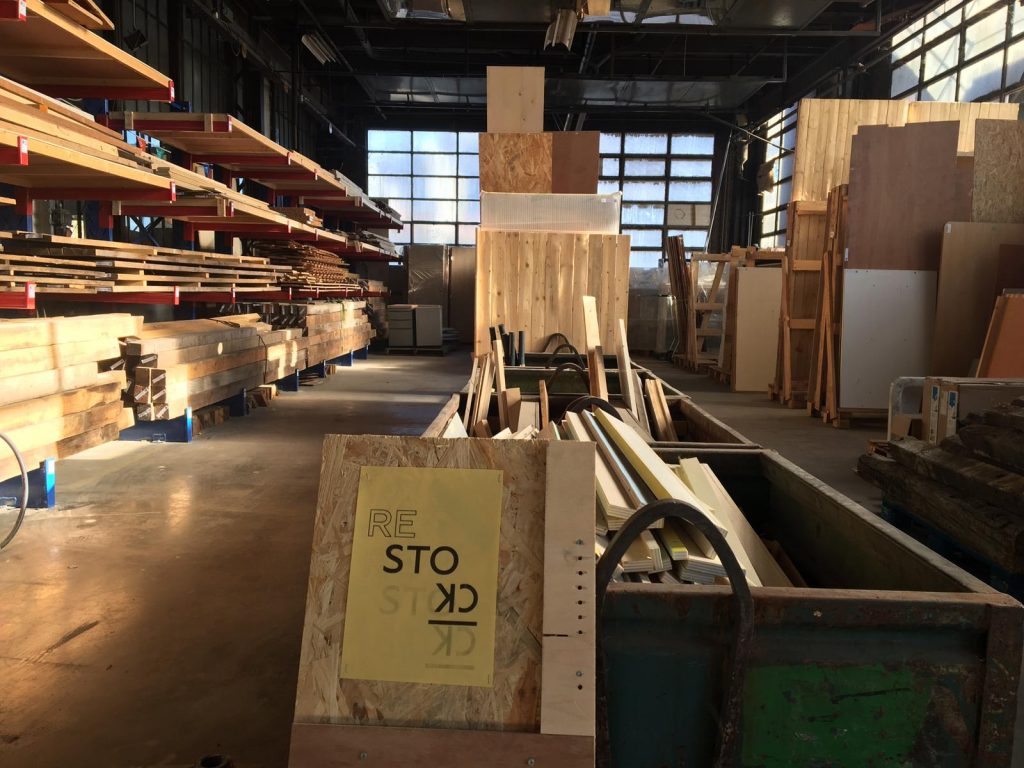Wood waste in event and temporary architecture
Paris pilot: interconnected scenarios
Paris pilot focuses on wood waste in event and temporary architecture
Paris is working on increasing timber circularity and reuse in the numerous city events and temporary architecture sites. The pilot is made of the City of Paris, the association Fab City Grand Paris, the creative and productive hub Volumes, and the associative design agency Ars Longa.
The pilot actions are focused on interconnected scenarios around the development of technical solutions facilitating the access of timber to reuse actors, increasing circularity in the event industry, and raising awareness on circular economy.
Due to the COVID pandemic, most events have been cancelled in Paris, and we will present how the pilot is using this challenge as an opportunity for circular economy.
Why we are here
Paris is the leading city for conventions and exhibitions, using large amounts of temporary structures made from timber, for a short period of time. As such reducing waste in this sector is a crucial focus. Moreover, the city being the host of the 2024 (or around) Olympic games makes it clear that we currently are at a decisive turning point to develop more circular solutions for temporary infrastructures and events related, to prove that such events can be part of a circular process.
The Paris pilot is creating tools to increase coordination, use and re-use of materials throughout their lifecycle.
What our pilot is doing for the circular economy
Whilst circular economy is a complex movement, requiring solutions to be specific and closed tuned to each specific situation, setting up adaptable tool kits to facilitate the transition to circular activities is crucial to foster its exponential growth.
With a strong focus on technological solutions development, the Paris pilot is developing a wide range of tools, designed to answer the barriers identified for reuse in the event and temporary structure industry: strain on storage, difficulty of reading a system split between different solutions and actors, different quality labels, opacity of the circulation of materials by some collection and waste management operators.

Pecha Kucha Night at Volumes Lab
Our objectives
The Pilot aims to understand and support the event industry and temporary construction market in the shift to increasingly circular operation. The actions of the Parisian pilot revolve around three interconnected objectives:
- Objective 1: Making reuse wood accessible in a simple and efficient way to reuse actors
- Objective 2: Allowing the reuse of wood between different actors in the event and temporary architecture
- Objective 3: Developing awareness and knowledge around circular practices and technological solutions for circular economy
These objectives rely heavily on technological solutions development to allow all stakeholders to join the circular movement and increase materials lifecycle, through the digitalization of the circular economy approach.
In the long term, the Parisian consortium aims to upgrade waste regulations to foster sustainable and resilient changes in the industry, by developing active lobbying towards the European institutions and other relevant stakeholders.
Paris Design Week pavillon by Ublik, incubated at Driven by Volumes
How you can get involved
Initially thought as an iterative process consisting in:
- implementing the first version prototype with events partners,
- evaluating their impact through material flow analysis, as well as improving the solutions from users experience,
the pilot plans were largely impacted by the COVID 19 pandemic, due to the cancelation of most events in 2020.
While measuring the solutions’ impact will be more difficult within the REFLOW time frame, Paris pilot is turning these challenging times into an opportunity for events actors to be more involved in the development of the pilot solutions. Circularity is also an opportunity to mitigate risks (cancellation) by allocating the cost of resources over multiple use cases.
The Parisian consortium is mostly focused on:
- The launch of Driven by Volumes, an incubation platform aiming to embed advanced technologies in Early Stage Entrepreneurship for a Circular Economy.
- The development of a labelling label by Ars Longa to create a community of actors around reuse (fablabs and designers) and showcase progress towards circularity, as well as best practices guides.
- Working on professionalizing reuse materials storage and usage, by working on the development of individual ID and label for each item, reorganizing storage, and experimenting around economic models for reuse materials by FCGP at Re-Store.
- Automating data collection on material characteristics by the development of the Dimension-use.
- Building a comprehensive overview of the timber possible journeys and actors involved, within the city, through the development of a timber transformation processes’ mapping throughout its lifecycle, and associated actors identification.
Who we’re collaborating with
The Paris pilot team is working with:
- Events and temporary architecture actors
- Fab labs, wood workshops and designers
- Incubated companies
- Restore and other reuse resources center
- City of Paris OTCP, DAC

